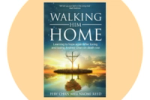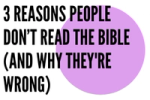Council Prayers 'Illegal' Court Rules
Simon Cross
The saying of prayers as part of a council meeting, has been ruled unlawful by the High Court today.
The judgement comes after the National Secular Society challenged the practise of prayers as part of the formal business of council meetings, in the Town Council meetings in Bideford, Devon.
The court ruled that: "The saying of prayers as part of the formal meeting of a Council is not lawful under s111 of the Local Government Act 1972, and there is no statutory power permitting the practice to continue".
The ruling will now be applied to the formal meetings of all councils in England and Wales, many of which are currently conduct prayers as part of their meetings.
However, the ruling does not restrict councillors from voluntarily attending prayer meetings, nor does it prohibit the saying of prayers as part of public religious acts, such as Remembrance Day services.
Secularist campaigners have sited prayers as being divisive, noting that they have been the cause of tension in a number of local councils.
One Christian councillor walked out of a meeting in Portsmouth when a Muslim Imam was asked to say a prayer, and a Shropshire councillor hit the headlines when he listened to Bob Dylan through headphones, rather than take part in prayers.
Keith Porteous Wood, Executive Director of the National Secular Society said: "Acts of worship in council meetings are key to the separation of religion from politics, so we're very pleased with the judgement, and the clear secular message it sends.
"We believe that council meetings should be conducted in a manner equally welcoming to all councillors, regardless of their religious beliefs, or indeed, lack of belief.”
A spokesman for The Christian Institute, the charity which supported Bideford Council in the action, Simon Calvert said: “We welcome the finding that the saying of prayers isn’t discriminatory, or a breach of equality laws, or human rights laws.
“But it is extraordinary to rule that councils have no lawful authority to choose, if they so wish, to start their formal meetings with prayers. That is simply wrong.
“The logic of the ruling is that councils would also be going beyond the law if they took a vote and decided to start each formal council meeting with the national anthem.
“There is no way that Parliament, when it passed the Local Government Act 40 years ago, intended it to be used to outlaw prayers
“This case was brought by a campaign group that wants to drive Christianity out of public life, and the High Court has today given them great encouragement to take matters further."
A separate ruling is expected today concerning Christian street preacher Michael Overd, who is accused of verbally harassing two gay men as they walked down Taunton High Street.
Civil partners Craig Manning and Craig Nichol claim that Mr Overd told them they would ‘burn in hell’ for their sin.
Legal counsel for Mr Overd claimed he was simply reading a passage from the Bible.
Latest Blogs

Spiritual Growth
LENT COURSES - How to choose the right one for you
Long overshadowed by the celebrations of Easter Sunday, Lent is being rediscovered as a sacred time of reflection and renewal in its own right and a time of preparation for the joyous seasonal finale.

Featured
Stocking Fillers
Here’s our pick of the top 3 Stocking Fillers this Christmas. You can find even more at our Christmas Store.

News
Where to Watch the New C.S. Lewis Film
Heading to a screen near you soon, The Most Reluctant Convert is a feature-length movie about the life and faith of one of England’s greatest Christian writers and thinkers: C.S. Lewis.

News
Advent Study Guide Review 2021
Go deeper with this year's brilliant Advent Bible Study Guides.

Interview
Author Interview with Feby Chan and Naomi Reed
Feby tells her compelling story in her book Walking Him Home. After wrestling with grief and suffering, she shares how God’s healing and faithfulness is enabling her to step into her new life and ministry.

Featured
3 Reasons People Don’t Read the Bible
We are currently in a strange situation. Bible sales are up, but the number of people reading the Bible is going down. Even stranger, this situation is nothing new. There has always been a difference between the number of people who own a Bible and the number of people who regularly read their Bibles.
